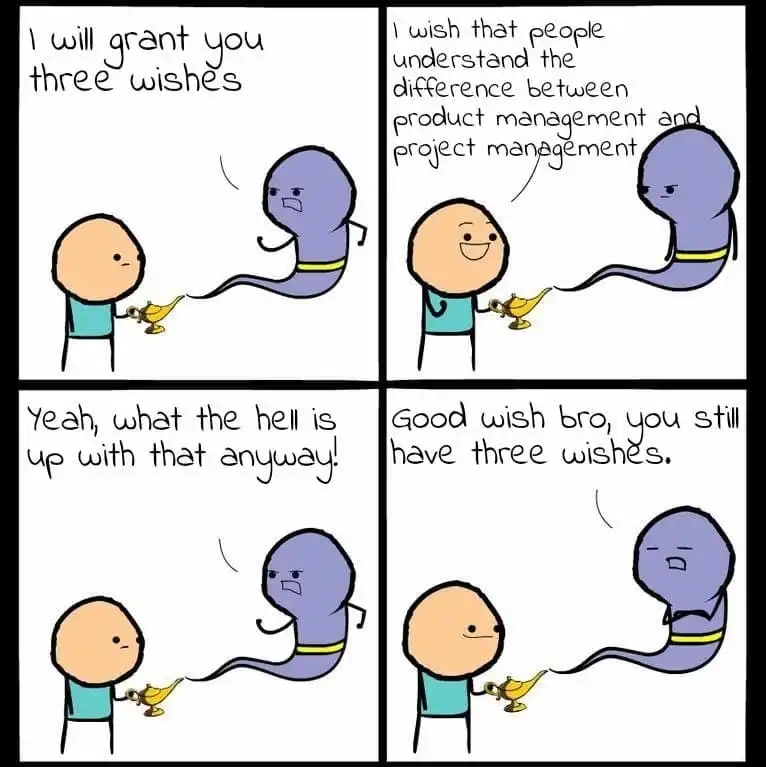“”A project manager ensures the project is done right, while a product manager ensures the right project is done.” – Marty Cagan”
Product manager and project manager roles sometimes overlap and frequently collaborate, but they serve fundamentally different purposes within an organization. This article explores the key differences between these two vital management positions and how they complement each other.

Major differences between Product Managers and Project Managers
| Aspect | Product Managers | Project Managers |
| Primary Focus | Product success in the market | Project delivery success |
| Timeframe | Long-term perspective (entire product lifecycle) | Short-term perspective (defined project duration) |
| Scope | “What” and “Why” – defining the product vision | “How” and “When” – executing the plan |
| Authority | Often called the “CEO of the product”Leader of project execution | Leader of project execution |
| Financial Role | Assess product adoption and profitability | Manage project within allocated budget |
| Success Metrics | Market success, customer satisfaction, revenue | On-time, on-budget delivery within scope |
| Lifecycle | Continuous product improvement | Temporary initiatives with defined end dates |
Read more : What are the top 10 skills required of a Product Manager?
A Day in the Life: Electric Bicycle Example
What a Product Manager Does
A product manager for an electric bicycle:
- Conducts market research to determine viability
- Conceptualizes features, design, and technology
- Develops a product roadmap and business case
- Sets measurable goals for product success
- Works with engineering, design, and project teams
- Plans and executes go-to-market strategy
- Monitors market acceptance and gathers feedback
- Makes decisions about improvements and new features
What a Project Manager Does
A project manager for the same electric bicycle:
- Enters after conceptualization is complete
- Sets project milestones aligned with the product roadmap
- Leads daily project activities
- Monitors progress and solves problems
- Communicates with team members
- Delivers the finished bicycle on time and within budget
How They Collaborate
The collaboration between product managers and project managers is critical because they are complementary puzzle pieces:
- The product manager provides the “what,” “who,” and “when”
- The project manager provides the “how”
- The product manager may work with multiple project managers simultaneously
- A product manager creates the vision; without this vision, there is no project
- The project manager ensures the vision becomes reality
For example, in a virtual reality headset development:
- The product manager oversees multiple projects related to the headset
- One project team builds the headset
- Another project team integrates it with existing platforms
- The product manager bridges these projects with a cohesive vision
Conclusion
While product management is responsible for a product’s overall strategy and success, project management focuses on executing specific projects related to the product. Both roles are essential and interdependent:
- Product managers define what features a product should have and how it should evolve
- Project managers ensure these features are implemented efficiently and effectively
Understanding these distinctions helps organizations build stronger teams where product and project managers complement each other’s skills and responsibilities, ultimately leading to better products and more successful projects.
